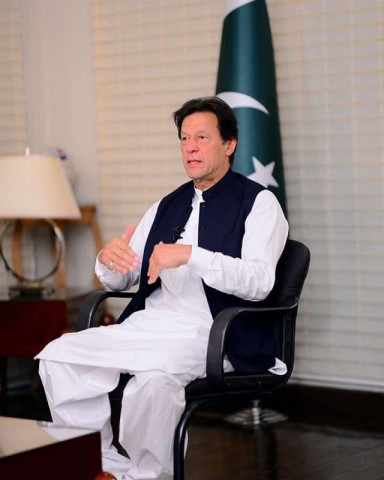Understanding the National Development Council
A similar council in 1997-98 had successfully shielded Malaysian economy from the Asian Financial Crisis

Prime Minister Imran Khan. PHOTO: INSTAGRAM/@imrankhan.pti
Since the fall of the Soviet Union and Deng Xiaoping’s market reform in China, central planning fell out of favour in many countries, especially those embracing the Washington consensus. In India, the equivalent of our NEC is named National Development Council. However, its functions have been effectively taken over by the National Institution for Transforming India (NITI) Aayog or Policy Commission, also headed by the prime minister. It was established by the market-friendly BJP government by abolishing the Planning Commission in 2015. Perhaps inspiration was provided by the National Development Council set up in Taiwan a year earlier in 2014 to improve policy coordination. It is not headed by the chief executive of the country, though. In the Philippines, the National Economic and Development Authority (NEDA) has been found to be too unwieldy. In 2017, its executive committee was restructured to collect a few players under the President to take timely and effective decisions.
Pakistan’s inspiration may have come from Dr Mahathir Mohamad. After taking over, once again, as the Prime Minister of Malaysia, Dr Mohamad has been thinking of a National Development Council under him to better coordinate policies and strategies. A similar council in 1997-98 had successfully shielded Malaysian economy from the Asian Financial Crisis by imposing capital controls against the advice of the IMF. The countries following the IMF’s one-size-fits-all approach suffered enormously.
None of these countries have the peculiar composition that has been announced for the National Development Council of Pakistan. Besides the Secretary to the Prime Minister, the council includes the Minister and Secretary of Foreign Affairs, as well as the Chief of the Army Staff. All other members are from the economic Ministries. Although the notification is issued by the Cabinet Secretariat, the Secretariat of the Council is in the Prime Minister’s Secretariat, not the Cabinet Secretariat as in the case of NEC. An Additional Secretary of Prime Minister’s Secretariat will act as the Secretary.
National security, as taught at the National Defence University, has three dimensions — economy, diplomacy and defence. Bad economic performance has adversely affected the other two dimensions. The composition and the terms of reference suggest that the NDC’s focus will be national economic security, beginning with a coordinated and forceful state response to tax delinquency. In the medium term, as the frontiers of geo-economic opportunity push forward under CPEC, they encounter geo-strategic threats that require a holistic response. The NDC, it seems, has been conceived in this context. The keyword is connectivity that has to be planned, programmed and projectised. It has also to be secured against sabotage and subversion. Only then will it lead to growth and development. As the economic pulls and pushes of connectivity cannot just be North-South, strategic thinking is required to partake of the East-West flows.
Published in The Express Tribune, June 21st, 2019.
Like Opinion & Editorial on Facebook, follow @ETOpEd on Twitter to receive all updates on all our daily pieces.















COMMENTS
Comments are moderated and generally will be posted if they are on-topic and not abusive.
For more information, please see our Comments FAQ